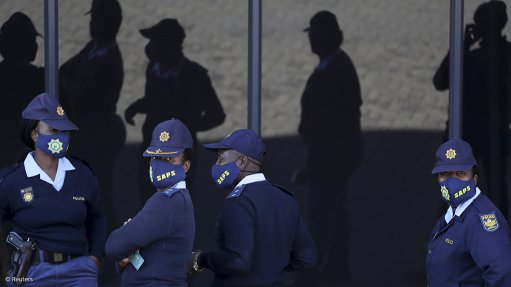
Photo by: Reuters
Out of the 38 SAPS stations that were monitored for service delivery and infrastructure issues, only 31.6% of them had access control points. Additionally, 26.3% had no holding cells and 10.5% did not even have any detention facilities.
This was revealed in the 2021/22 Police Needs and Priorities (PNP) Report presented by the Department of Police Oversight and Community Safety in today’s Standing Committee.
These figures are an indication that SAPS no longer has the ability to maintain or build new infrastructure. A case in point is that of Makhasa Police Station which has remained at planning and design stages for the past 9 years with no reasons for the delays given.
On an annual basis, the Department reports on the Western Cape’s police needs and priorities, which is thereafter distributed to key role players in the public sector and civil society in order to influence the decisions taken place on a national level. This is mandated in the Community Safety Act with our province remains the only to do so – further highlighting how seriously the Western Cape takes its oversight role.
While the Provincial Commissioner and his team are only due to respond on 7 March, it is unfortunate that there are a variety of issues that arose from the meeting:
Even though SAPS granted establishment in the province is 21 267, there were only 18 867 employees in March 2022.
Above this, police officers decreased to 15 730 last year from 16 240 in 2021. The 1 118 new recruits announced in December will assist in our capacity, but the vacancy rate is still a concern.
The SAPS to population ratio in the Western Cape is 1:417, with the City of Cape Town’s set at 1:622 on average. There are some stations operating at ratios above 1:800, including that of Harare, Samora Machel, Gugulethu and Delft.
As such, the case load of detectives is on average well over 200 dockets per person, which is 333% above the 50-60 case standard.
MPP Gillion Bosman says: “Despite the worrying context of our police, we are fortunate to have a provincial department that is committed to improving safety. Over the past nine months, the Department has held 5 rural district and 2 City engagements to receive inputs and recommendations from a variety of stakeholders. In each engagement, between 120 and 180 people participated and has allowed our department to conduct robust oversight.
As the DA in the Western Cape, we look forward to SAPS attending the next Standing Committee to account for these findings. Our residents deserve to know what the true state of crimefighting is.”
Issued by Gillion Bosman, MPP - DA Western Cape Spokesperson on Community Safety